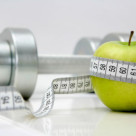When you increase your confidence level, you are able to interview more effectively, negotiate higher salaries and, subsequently you will receive a wider number of offers. Conversely, when you fail to do so, you are going to be paid less, given fewer responsibilities and will end up accepting a position that you are overqualified for.
Insecurity is like a leash that tethers you to a finite number of job options. Because of self-doubt, distrust and insecurity, you’ve become estranged from your true source of power. Luckily, there is nothing stopping you from changing.
You can train yourself to begin to feel more confident both in life and when interviewing. It doesn’t happen overnight, though with practice it will happen and it will change your career.
To help, I’ve listed some basic exercises for you to implement in order to gain key self-esteem and momentum during job transitions:
1. Begin refuting the thoughts pertaining to your negative self-image
In order to begin to raise your self-esteem, you must learn to refute the destructive thoughts you have about yourself.
Stop focusing on what you don’t like about your personality, abilities or qualifications. Begin to replace those thoughts with the aspects that you do admire.
Stop calling yourself names, it’s counterproductive. Instead, focus on what you like about yourself. Forget failures. Rather, think about prior achievements, positive qualities and difficulties you’ve overcome in the past.
Stop focusing on what you don’t like about your personality, abilities or qualifications. Begin to replace those thoughts with the aspects that you do admire.
Stop calling yourself names, it’s counterproductive. Instead, focus on what you like about yourself. Forget failures. Rather, think about prior achievements, positive qualities and difficulties you’ve overcome in the past.
2. Learn to effectively deal with disapproval and failure
People who have a high self-esteem have a superior ability to cope with failure. On the flip side, those who have a low sense of self-worth will allow outer circumstances such as the decision of a hiring manager to control their lives and how they feel about themselves.
It’s not always about you – that’s unrealistic thinking. On the contrary, as an executive recruitment specialist, I can tell you that interviewing rejection can spawn from dozens of other variables. Just because you take something personally, doesn’t mean you’re correct. Insecurity often distorts reality.
It’s not always about you – that’s unrealistic thinking. On the contrary, as an executive recruitment specialist, I can tell you that interviewing rejection can spawn from dozens of other variables. Just because you take something personally, doesn’t mean you’re correct. Insecurity often distorts reality.
3. Think in action oriented terms
When people who have a high self-esteem run into hurdles, they don’t waste time prostrating and they keep at the job until it is finished.
For instance, instead of worrying about how a resume is not up to snuff, take action and make it better. Don’t stop until the job is done. People with a high self-esteem don’t make excuses and remain resilient consistently setting goals for themselves.
For instance, instead of worrying about how a resume is not up to snuff, take action and make it better. Don’t stop until the job is done. People with a high self-esteem don’t make excuses and remain resilient consistently setting goals for themselves.
4. Stop worrying
Worrying about your job search is counterproductive and will magnify your insecurity. Worrying leads to stress, anxiety and panic which carries over to your interviews.
Even though the majority of the things that job seekers worry about never happen, they find themselves utter victim to this thought process. The most effective remedy is to live in the moment. Let life unfold and begin to believe that there is more to life than fretting and “what-iffing.”
The right mindset will significantly boost your overall state of being and performance. When you think positively and believe in your abilities, you’ll recognize success.
Since low self-esteem can spiral out of control and seriously effect your ability to find the right position, it’s crucial to begin improving your self perception asap. Once this is successfully done, you can start to interview at the level you should and will find the right position in a more timely, constructive manner.
Even though the majority of the things that job seekers worry about never happen, they find themselves utter victim to this thought process. The most effective remedy is to live in the moment. Let life unfold and begin to believe that there is more to life than fretting and “what-iffing.”
The right mindset will significantly boost your overall state of being and performance. When you think positively and believe in your abilities, you’ll recognize success.
Since low self-esteem can spiral out of control and seriously effect your ability to find the right position, it’s crucial to begin improving your self perception asap. Once this is successfully done, you can start to interview at the level you should and will find the right position in a more timely, constructive manner.









